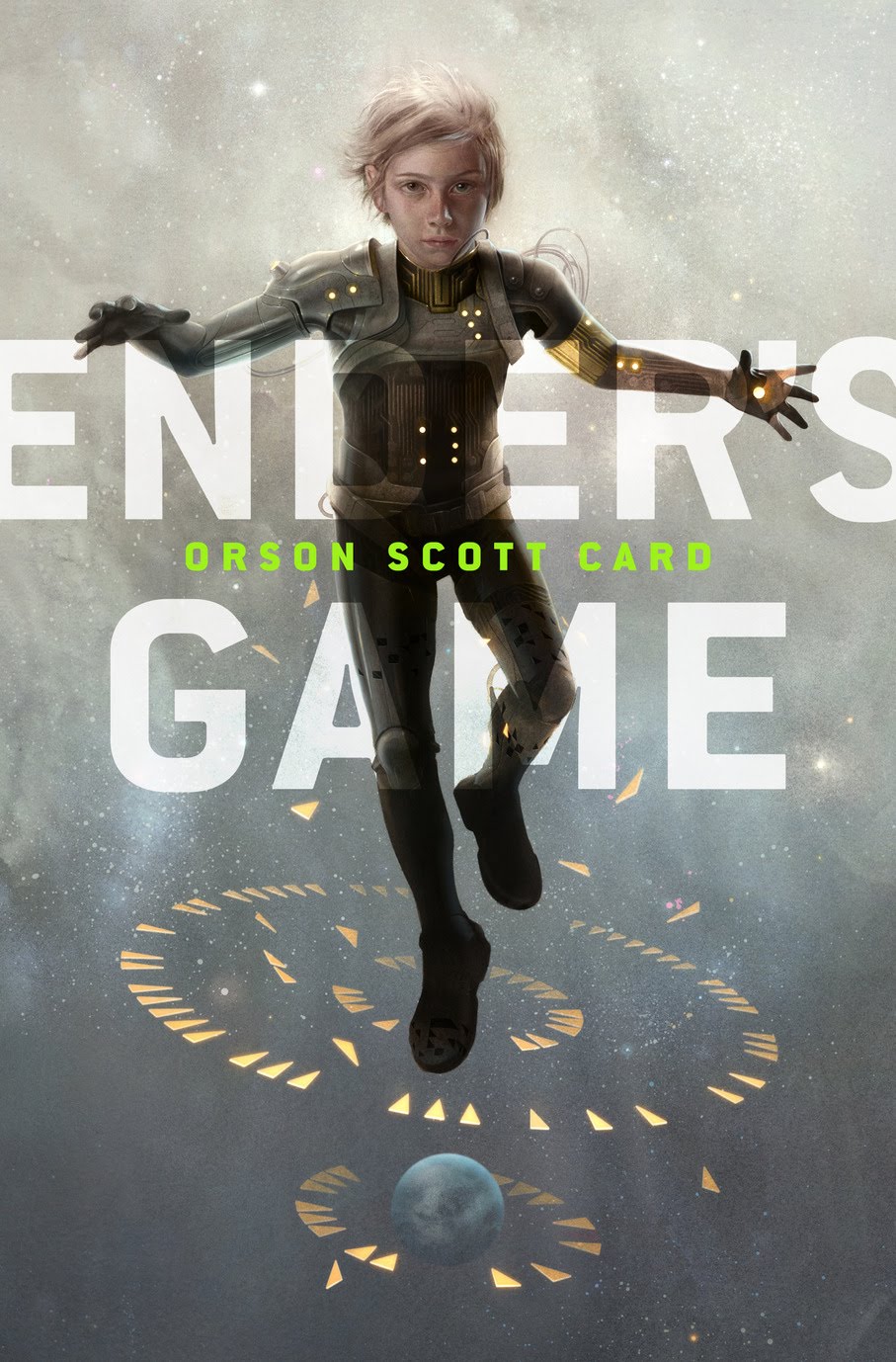If I had to identify the book that exerted the greatest
influence on my decision to become a fiction writer, it would have to be Orson
Scott Card's Ender's Game. Much like Alfred Slote's C.O.L.A.R., from last week's Can-a-Story-Change-Your-Life? (or CASCYL for short . . . sounds like "castle?") post, it hit several of my personal interest points: child geniuses, strategy
games, interstellar warfare, and the philosophy of war. But what gave it
such a profound and lasting impact was how it took those elements and interwove
them into a deeply compelling story that centered, more than any story I'd come
across before it, on character, and really getting you inside his head.
The science fiction elements, though robust and well-realized on their own,
in truth served primarily as tools to allow the reader to delve deeper into the
protagonist's mind. Much like the monitor device introduced in the
novel's opening pages allowed Ender's observers to gain a thorough enough
understanding of him to make him the linchpin of their war plans, the course of
the novel makes the reader so invested in Ender that the wonderfully
orchestrated climax scores a direct emotional impact. The reader experiences
precisely the same reaction that he does in rippling waves of exhilaration,
disbelief, and latent horror - the very essence of catharsis. The ironic - perhaps even tragic - truth that Ender comes to realize of his various enemies in the novel resonates with the truth that the reader comes to realize of him: just as his understanding of them grows to the point where he both comes to love and destroy them in the same bittersweet stroke, the reader's understanding of Ender grows to the point where the reader comes to love him even as he undertakes the very actions that profoundly alter - and, in that way, destroy - the very person the reader has come to know. Although Ender endures the novel's events, he is, like the mono-mythic hero, changed by the experience, and the boy that the reader has come to know in the course of the novel is lost forever. The fulfillment of understanding concurs with the echoing ache of that bereavement, and the resulting amalgam of emotion and reason far exceeds the sum of its parts.
This kind of deeply personal connection with story and character is, I think, only possible in the fixed media realm (sorry, film, TV, and anime): specifically, novels and - I would contend - graphic novels. Those forms reliance upon written word - which is admittedly on a sliding scale when it comes to graphic novels - are what allow for the in-depth introspection that enables the kinds of character studies that allow you to experience another person's life as your own. This contention makes me view the upcoming Ender's Game movie with a certain degree of trepidation; divested of the advantages provided by the novel medium and OSC's direct storytelling prowess, will the silver screened story hold up to its written counterpart? Will what it gains in immediacy of action and bombast of visual and auditory effect make up for what it loses in interior thought and reflection? The storyteller in my suspects not; the eternal optimist hopes it will.

No comments:
Post a Comment